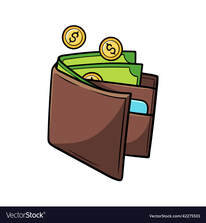If summer is a season of spontaneity and indulgence, then fall offers a counterpoint: It's a chance to get back on schedule, and back on budget.
0 Comments
|
We must stop attacking government |
Former President Donald Trump, the runaway frontrunner, has long referred to the federal workforce dedicated to serving our country as the "swamp" or "deep state." Or worse, when it comes to the Justice Department and FBI, two federal entities most Republicans used to defend before abandoning their principles in defense of the twice-impeached, thrice-indicted ex-president.
But the irresponsible rhetoric doesn't stop with Trump. Several others seem to be striving to out-hate Trump, including his closest rival, Ron DeSantis, the Ivy League-educated Florida governor who rails against perceived "elites" in government, education, health care and, of course, media.
DeSantis has also said as president he'd want a secretary of defense "who may have to slit some throats." He recently repeated that sick rhetoric, which in an earlier world would and should have disqualified him, in New Hampshire, where he said, "All of these deep-state people, you know, we are going to start slitting throats on Day One."
A similarly privileged Ivy Leaguer, GOP presidential candidate Vivek Ramaswamy, has leveled harsh rhetoric against the IRS and FBI, calling for their abolishment. Other GOP candidates, including Nikki Haley, have denigrated public servants, too.
Republican rank-and-file may be listening, according to Gallup, which reports that trust in institutions is at or near an all-time low.
"The part that I think is most disturbing of our current moment is that the folks we looked at as the responsible adults in the room have become orchestrators of distrust and vile attacks on the institutions that serve all of us," Larry Jacobs, director of the Center for the Study of Politics and Governance at the University of Minnesota's Humphrey School, told an editorial writer. "These are institutions that are the backbone of a country based on the rule of law. Disagree with what the president or Congress is doing, but don't attack those very institutions, their legitimacy."
If he returns to the White House, Trump has indicated that he would reinstate an executive order known as "Schedule F," which would reclassify thousands of federal workers as at-will employees no longer protected by civil service rules. So federal workers, already reeling from the vile, even violent, rhetoric from presidential candidates are now threatened with losing the system designed to professionalize governance so each new administration doesn't stock bureaucracies with unqualified political loyalists.
The federal government, like state and local governments and private-sector entities everywhere, is already contending with a worker shortage. What qualified candidate would want to go serve our country under these conditions?
But perhaps that's the point: Beyond Trump's dark campaign promise of "retribution" is a fundamental disdain for government and, accordingly, government workers.
That impacts this country — and beyond.
"It's really kind of shocking," Jacobs said. "It's not that long ago when America was held up as kind of a paragon for democracy, and one of the main reasons was civic culture. And what people meant by that was yes, there were ferocious disagreements of policy and personalities, but there was a basic agreement on the rules of the game." And decision makers "who understood the importance of trust in our basic institutions."
There still are people like that. People like Barry Black, a retired Navy rear admiral turned Senate chaplain. Black, who in July marked his 20th year of ministry, told Roll Call magazine in an interview marking the milestone that "We need to stop demonizing government and governmental workers" and better appreciate their role in "holding in check the chaotic."
Those are words Trump and others — including another Navy veteran, DeSantis — need to hear and heed. Indeed, those leading our government need to protect Americans from chaos, not create it.
Archives
July 2024
June 2024
April 2024
March 2024
February 2024
January 2024
December 2023
November 2023
October 2023
September 2023
August 2023
July 2023
June 2023
May 2023
April 2023
March 2023
February 2023
January 2023
December 2022
November 2022
October 2022
September 2022
August 2022
July 2022
June 2022
May 2022
April 2022
March 2022
February 2022
January 2022
December 2021
November 2021
October 2021
September 2021
August 2021
July 2021
June 2021
May 2021
April 2021
March 2021
February 2021
January 2021
December 2020
November 2020
October 2020
September 2020
August 2020
July 2020
June 2020
May 2020
April 2020
March 2020
February 2020
January 2020
December 2019
November 2019
October 2019
September 2019
August 2019
July 2019
June 2019
May 2019
April 2019
February 2019
January 2019
December 2018
November 2018
October 2018
September 2018
August 2018
July 2018
June 2018
May 2018
April 2018






 RSS Feed
RSS Feed